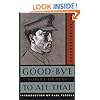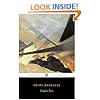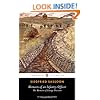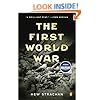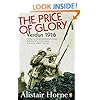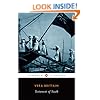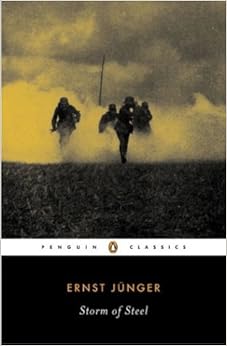


Flip to back
Flip to front

Storm of Steel (Penguin Classics) Paperback – May 4, 2004
See all 18 formats and editions
Hide other formats and editions
| Amazon Price | New from | Used from |
|
Unknown Binding
"Please retry"
|
—
|
— | — |

$9.17
FREE Shipping on orders over $35.
In Stock.
Ships from and sold by Amazon.com.
Gift-wrap available.
NO_CONTENT_IN_FEATURE
Tell the Publisher!
I'd like to read this book on Kindle
Don't have a Kindle? Get your Kindle here, or download a FREE Kindle Reading App.
I'd like to read this book on Kindle
Don't have a Kindle? Get your Kindle here, or download a FREE Kindle Reading App.
Choose Your Own Autobiography
Step right into Neil Patrick Harris's shoes in an exciting, interactive autobiography that places the reader squarely in the driver's seat. Learn more
Step right into Neil Patrick Harris's shoes in an exciting, interactive autobiography that places the reader squarely in the driver's seat. Learn more
Product Details
Would you like to update product info or give feedback on images?.
|
Editorial Reviews
Review
"Extraordinary... Michael Hofmann’s superlative translation retains all the coruscating vitality of the original." —Niall Ferguson, author of Colossus
"Storm of Steel is what so many books claim to be but are not: a classic account of war." —Evening Standard
"Storm of Steel is what so many books claim to be but are not: a classic account of war." —Evening Standard
About the Author
Ernst Jünger (1895–1998) was born in Heidelberg. He ran away from school and volunteered to join the German army. Fighting throughout the war, he recorded his experiences in several books, most famously in In Stahlgewittern (Storm of Steel).
More About the Authors
Discover books, learn about writers, read author blogs, and more.Customer Reviews
Most Helpful Customer Reviews
423 of 455 people found the following review helpful
By
M. G Watson
TOP 1000 REVIEWERVINE VOICE on February 21, 2006
Format: Paperback
Verified Purchase
31 Comments
Sending feedback...
I already wrote a review of "The Storm of Steel" under its full title ("From The Diary of a German Stormtroop Officer on the Western Front"), but I felt compelled to take up a sword here not only on behalf of Ernst Juenger but also against many who deliberately misinterpret his work.
Political cenorship is a fascinating subject and it operates on many levels, both subtle and gross. In a democractic society it generally is practiced in the former manner, so that the majority of people do not even know that it is happening, much less object to its imposition. You would be hard-pressed, for example, to find someone in Western civilization who has not either read, seen a televised adaptation of, or at least heard of Klaus Maria Remarque's seminal "All Quiet on the Western Front." On the other hand, you could blast a fire hose on the Mall on the Fourth of July and not splash a person who has ever heard of Juenger's "Storm of Steel." Were you in fact to do so, you would probably find that the person in question describes it as "war-glorifying" or even "neo-Nazi"; only later would you discover that they have never read it.
Like most people, I was forced to read Remarque's touching "novel" (based of course on his own experiences as a "Frontkaempfer" in WWI) when I was in school, and like everybody else, I coughed up the expected book report denouncing war as a stupid and futile exercise in mass misery and mindless slaughter. Looking back, I can see that every "war" novel and book I was ever assigned in school at any level, even in college, was essentially of the same stripe: war is the most vile, the most disgusting, the most pointless exercise in the category of human endeavor; war solves nothing, and represents absolute evil.Read more ›
Political cenorship is a fascinating subject and it operates on many levels, both subtle and gross. In a democractic society it generally is practiced in the former manner, so that the majority of people do not even know that it is happening, much less object to its imposition. You would be hard-pressed, for example, to find someone in Western civilization who has not either read, seen a televised adaptation of, or at least heard of Klaus Maria Remarque's seminal "All Quiet on the Western Front." On the other hand, you could blast a fire hose on the Mall on the Fourth of July and not splash a person who has ever heard of Juenger's "Storm of Steel." Were you in fact to do so, you would probably find that the person in question describes it as "war-glorifying" or even "neo-Nazi"; only later would you discover that they have never read it.
Like most people, I was forced to read Remarque's touching "novel" (based of course on his own experiences as a "Frontkaempfer" in WWI) when I was in school, and like everybody else, I coughed up the expected book report denouncing war as a stupid and futile exercise in mass misery and mindless slaughter. Looking back, I can see that every "war" novel and book I was ever assigned in school at any level, even in college, was essentially of the same stripe: war is the most vile, the most disgusting, the most pointless exercise in the category of human endeavor; war solves nothing, and represents absolute evil.Read more ›
Thank you for your feedback.
If this review is inappropriate, please let us know.
Sorry, we failed to record your vote. Please try again
112 of 120 people found the following review helpful
By
isala
on July 10, 2004
Format: Paperback
Comment
Sending feedback...
Ernst Junger was there for the duration. He was wounded sixteen times, he lost his brother. He experienced the trench war in all its hellish glory. That's the difference between Storm of Steel and other WWI memoires like Farewll to All That, Memoires of an Infantry Officer, No News from the Western Front, etc: Junger is not anti-war; he loved it! Do not expect some dreaming idealist though. Junger was a harsh realist. Nothing is to horrifying for him to tell (and believe me - there are a lot of horrifying detail!). He took part in the major combats on the western front, so we get a rare first hand glimpse of the war, The style is vivd, yet sober. He comes across as a Prussian gentleman, not cruel, but he does what he has to do to survive.
Junger later became one of the finest authors of the twentieth century. He is sadly unknown in the Anglo-Saxon world, in much due to his refusal to distance himself from Hitler (he did not embrace nazism though either). He lived an interesting life; he stopped doing LSD when he turned seventy, and he wrote a major treaty on the role of bugs in heraldry. More of his work deserves to be recognized.
Junger later became one of the finest authors of the twentieth century. He is sadly unknown in the Anglo-Saxon world, in much due to his refusal to distance himself from Hitler (he did not embrace nazism though either). He lived an interesting life; he stopped doing LSD when he turned seventy, and he wrote a major treaty on the role of bugs in heraldry. More of his work deserves to be recognized.
Thank you for your feedback.
If this review is inappropriate, please let us know.
Sorry, we failed to record your vote. Please try again
114 of 125 people found the following review helpful
By
Christopher W. Coffman
on May 31, 2001
Format: Paperback
Comment
Sending feedback...
This book was practically impossible to find for many years, which is remarkable, given its high quality. It is an extraordinary account of personal combat experience from World War I, written by a truly heroic young soldier who was awarded the highest honor for outstanding valour, the Pour le Merite, or Blue Max.
The author, Ernst Juenger, was also a gifted writer who created an incredibly vivid and gripping account of his experiences. The only memoir that deserves to be considered its peer is Erwin Rommel's memoirs of his service as a young officer in World War I , published in English as Infantry Attacks. Rommel also won the Blue Max.
Unlike Rommel's book, which reads like a primer for fighting effectively as an infantry officer, "The Storm of Steel" incorporates an almost philosophical endorsement of the heroic life and its values. This sounds positive, but Juenger vividly portrays what a heroic life is really about: slaughtering other human beings, callousness, incredible courage, disregard for one's own life. In practice, a troubling collection of proficiencies and character traits.
The culture that produced such a cool and talented soldier was also the culture that tragically curdled into the Nazi nightmare. No reader will have the answer to how the two phenemona are connected; no reader should avoid posing the question.
The author, Ernst Juenger, was also a gifted writer who created an incredibly vivid and gripping account of his experiences. The only memoir that deserves to be considered its peer is Erwin Rommel's memoirs of his service as a young officer in World War I , published in English as Infantry Attacks. Rommel also won the Blue Max.
Unlike Rommel's book, which reads like a primer for fighting effectively as an infantry officer, "The Storm of Steel" incorporates an almost philosophical endorsement of the heroic life and its values. This sounds positive, but Juenger vividly portrays what a heroic life is really about: slaughtering other human beings, callousness, incredible courage, disregard for one's own life. In practice, a troubling collection of proficiencies and character traits.
The culture that produced such a cool and talented soldier was also the culture that tragically curdled into the Nazi nightmare. No reader will have the answer to how the two phenemona are connected; no reader should avoid posing the question.
Thank you for your feedback.
If this review is inappropriate, please let us know.
Sorry, we failed to record your vote. Please try again
38 of 39 people found the following review helpful
By
seydlitz89
on July 21, 2000
Format: Paperback
1 Comment
Sending feedback...
Ernst Jünger's memoirs of his service as a junior officer with the 73rd Hannoverian Fusilier Regiment on the Western Front are different than any other war memoirs I've read. Jünger provides a cold, insightful, yet evenhanded view of the war in the trenches. He respects the English soldiers he's up against, hears funny stories about pre-war Cambrai from the elderly French couple in whose house he's been quartered, and is invited along with his comrades to share bountiful suppers with Flemish farmers. While passionate about the honor he must uphold as a soldier and his support of the "idea", he refuses to demonize his enemy.
His descriptions of the fighting are horrific. At Guillemont, during the battle of the Somme as they are digging out their foxholes, he notices that the "earth" is composed of layers, representing each company that had been fed into the furnace, annihilated, ground to bits only to be replaced by the next company and the next. . . Whole units disappear without a trace. For Jünger the battlefield has its metaphysical element: Gas mask-clad pickets become demons that he converses with, fields of dead and dying exude a sweet smell that drives the living giddy, men disappear for no apparant reason and are never seen again.
Yet for Jünger even though 10 out of 12 soldiers fall, the desolation of war emphasizes and even spiritualizes the joy produced by the noble drive to endure and overcome battle. The fire of war produced over the four years of his service an ever purer and nobler warrior ethos. For this description alone is perhaps the book worth reading, since it provides us with a link to an aristrocratic/military ideal which put service to that ideal above everything else, even one's own survival.Read more ›
His descriptions of the fighting are horrific. At Guillemont, during the battle of the Somme as they are digging out their foxholes, he notices that the "earth" is composed of layers, representing each company that had been fed into the furnace, annihilated, ground to bits only to be replaced by the next company and the next. . . Whole units disappear without a trace. For Jünger the battlefield has its metaphysical element: Gas mask-clad pickets become demons that he converses with, fields of dead and dying exude a sweet smell that drives the living giddy, men disappear for no apparant reason and are never seen again.
Yet for Jünger even though 10 out of 12 soldiers fall, the desolation of war emphasizes and even spiritualizes the joy produced by the noble drive to endure and overcome battle. The fire of war produced over the four years of his service an ever purer and nobler warrior ethos. For this description alone is perhaps the book worth reading, since it provides us with a link to an aristrocratic/military ideal which put service to that ideal above everything else, even one's own survival.Read more ›
Thank you for your feedback.
If this review is inappropriate, please let us know.
Sorry, we failed to record your vote. Please try again
